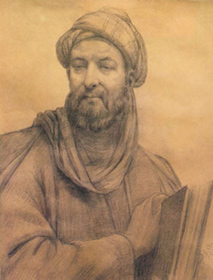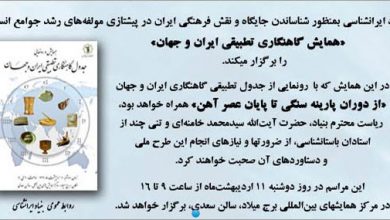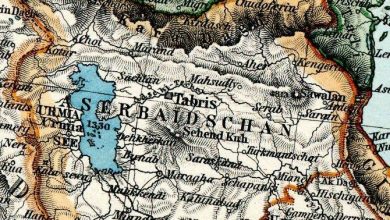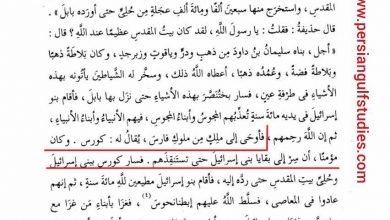Biography of Sheikh al-Raees Abu Ali Sina

(Sheikh Al-Rais ، Abu Ali Sina , Hussein bin Abdullah Hassan bin Ali bin Sina) , known as Ibn Sina in 370 A.H. He was born in Dehi named Khormithan near Bukhara .
Participating in Ismaili discussions since childhood, through his father - who was one of their followers - made Bo Ali very early acquainted with the various topics and knowledge of his time. .
His talent in learning sciences prompted his father not to engage Buali in anything other than education and knowledge gathering, following the advice of one of his professors. . And it happened that due to his genius, he became skilled in various sciences of his time, including medicine, at the beginning of his youth .
As far as the king of Bukhara, Noah bin Mansour ( Government of 366 until the 387 Ah ) Due to his illness, he invited him to his home, and Ibn Sina got access to the huge library of the Samani court in this way .
In the description he wrote, he talks about the sources of his library :
I asked them for everything I needed and I found books whose names had not reached many people and I had not seen them before and I have not seen them since. . So I read these books and benefited from them, and I found the measure of every man in knowledge, and when I reached the age of eighteen, I got rid of all this knowledge. .
In this way, he in various sciences including Wisdom, logic and mathematics - which includes itself Number, geometry, astronomy and music Is - mastered .
Despite dealing with politics in the court of Mansur, the Samanid king and attaining the position of minister of Abu Tahir Shams al-Dawla Deilmi, as well as being involved in the problems caused by the conflict of nobles - which followed his numerous trips and imprisonment for several months by Taj al-Mulk, the ruler of Hamadan. He has written more than hundreds of book volumes and many treatises, each of which has been written according to his time and circumstances. . When he was in the Emir's court and he had enough comfort and he had access to books, he was busy writing the book of law in medicine, or his great philosophical encyclopedia, Kitab Shafa. . But while traveling, he only wrote notes and small treatises . In prison, he used to recite poetry or recite religious meditations in a style that is not devoid of beauty .
Among Ibn Sina's writings, healing in philosophy and law in medicine have gained world fame . The Book of Healing is written in eighteen volumes in the fields of science and philosophy, i.e. logic, mathematics, natural sciences and theology . The logic of healing today is still considered as one of the most reliable books of Islamic logic, and its nature and theology are still of interest to those interested. . The Book of Law - which was considered one of the most important medical books for centuries - contains information about the general laws of medicine, combined and non-combined drugs, and various diseases. . This book was translated into Latin languages in the 12th century with the beginning of the translation movement, and has been translated into English, French and German languages. . The law - which is a codified collection of all ancient and Islamic medical knowledge - was used as a medical textbook in European universities and until the year 1650 Along with the works of Galen and Mondino, AD was taught at the universities of Leuven and Montpellier .
Ibn Sina has also made valuable actions in various scientific fields . He translated Euclid . He made astronomical observations and invented a device like the current vernier . In the field of motion, force, airless space ( space ) , light, heat and density had innovative research . His treatise on minerals or minerals was the most important reference in geology in Europe until the 13th century .
This is what Figine said about this treatise in the book of medieval scholars : Ibn Sina has a treatise whose Latin name is as follows : Of the Lagibum Conglutination . In this treatise, there is a chapter called the principle of mountains, which is very interesting . Ibn Sina says there : The mountains may have been formed for two reasons . One is the rise of the earth's crust . As severe earthquakes occur in the earth, and other water flow that digs valleys to find a channel and at the same time causes the earth to rise. . Because some lands are soft and some are hard . Water and wind take a part and leave a part . This is the reason for some of the earth's ridges .
Ibn Sina, due to his logical and systematic intellect - which even in medicine tried to make treatment subject to mathematical rules as much as possible - considered mastery of philosophy as perfection for a scientist. . In order to be aware of Aristotle's thoughts and to understand them accurately, as he himself wrote in his biography, 40 He read the book "Maf al-Tabiyyah" once and finally found its meaning by using the explanation written by Abu Nasr Farabi about that book. . During his life, Bu Ali went through two important periods in terms of philosophical ideas . The first was the period in which he followed the philosophy of Masha and explained the ideas and teachings of Aristotle, and the second was the period in which he deviated from those ideas and became, in his own words, a supporter of the Eastern wisdom and a follower of the School of Illumination. .
He succeeded in presenting a coherent philosophical system based on the one-hundred-year effort made before him by people like Al-Kandi and Farabi for the formation of Islamic philosophy. . Considering that the preparations for this work were prepared before him, Ibn Sina's task and duty was to discover and solve problems and complexities and explain them in a clear and concise way. . Relate the partial branches to the total achievement and bring it together .
By presenting his opinion on the relationship and relationship between general concepts such as man, virtue and true details, he addressed one of the questions of medieval scholars - which had been occupying their minds for a long time. – answered . The influence of Ibn Sina's philosophical views, as well as his medical teachings, is certain, except in the Islamic realm, in Europe as well. . Albertus Magnus, a German scientist of the Dominican order (1200 until the 1280 ad ) He was the first person who wrote a comprehensive commentary on Aristotle's philosophy in the West . For this reason, he is often considered the main founder of Christian Aristotelianism . He, who united the Christian world with the Aristotelian tradition, relied heavily on Ibn Sina in understanding Aristotle's works. .
Also, our philosophy after the nature of Ibn Sina is a summary of the contents that Latin thinkers reached two centuries after him and were able to harmonize different philosophical schools in Madrasi philosophy. .
Abu Ali Sina in the year 428 Hijri, when only 58 He was 12 years old, while he left the world with his devotion to human knowledge, leaving a name for the strength of Iranian civilization.
To download the PDF book of Sheikh Abu Ali Sina(All of this) Click on the link below






